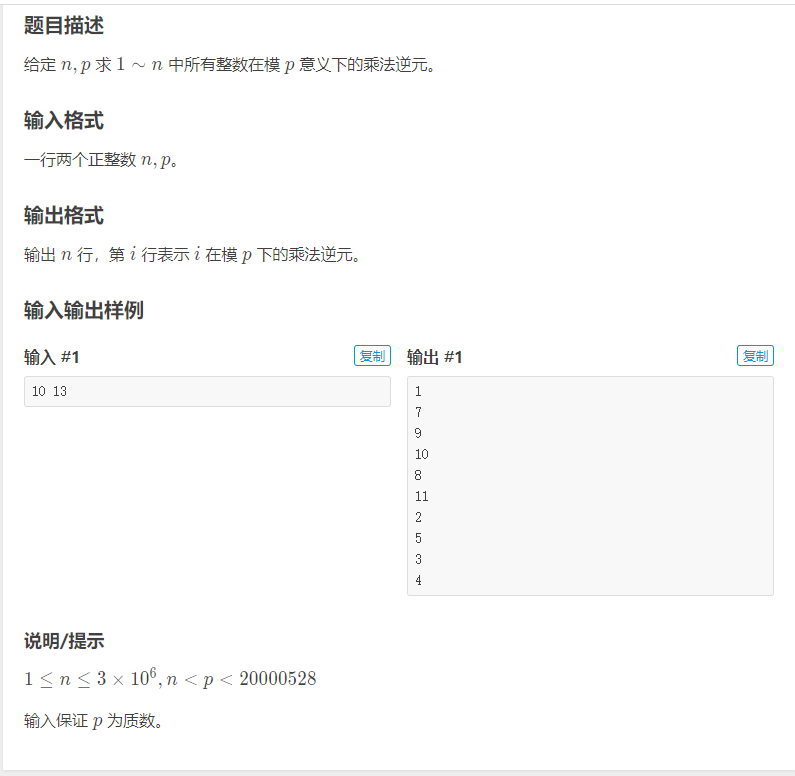
这道题的求逆元需可以用扩展欧几里得来求,这里用一种新方法,使用线性递推来求解
首先,假设有一个数 p ,有:p = k * i + r ,那么,k=p / i,r = p % i
那么就有 k * i + r ≡ 0 (mod p)
同时乘上 i-1 * r-1 ,就有 k * r-1 + i-1 ≡ 0 (mod p)
移项,就有 i-1 ≡ - k * r-1 (mod p)
将 k=p / i,r = p % i 代入,得: i-1 ≡ -( p / i )*( p % i )-1 (mod p)
那么,p % i 明显是要小于 i 的 ,那么我们就可以利用 (p % i)-1 ,来求得 i-1
但是,我们还需要保证 i-1 是一个正数,那么就需要再加上一个 p , 这并不影响我们的结果,因为 a + b ≡ a (mod b)
那么,我们的最终结果就是:inv[i] = p - ( p / i ) * inv[p%i] % p
最后,只要将 inv[0] ,inv[1] 分别赋值为 0,1,就可以推出全部的逆元结果
见代码:
#include<iostream> #include<cstdio> #include<algorithm> #include<cstring> #include<math.h> using namespace std; long long a[30000001]; int n,p; /*inline int read(){//可以用快读,不过scanf已经够了 int f=1,x=0;char ch; do{ch=getchar();if(ch=='-')f=-1;}while(ch<'0'||ch>'9'); do{x=x*10+ch-'0';ch=getchar();}while(ch>='0'&&ch<='9'); return f*x; }*/ int main(void) { scanf("%d%d",&n,&p); a[1]=1; cout<<1<<endl; for(int i=2;i<=n;i++) { a[i]=1ll*(p-p/i)*a[p%i]%p;//递推公式套用 printf("%d ",a[i]); } return 0; }